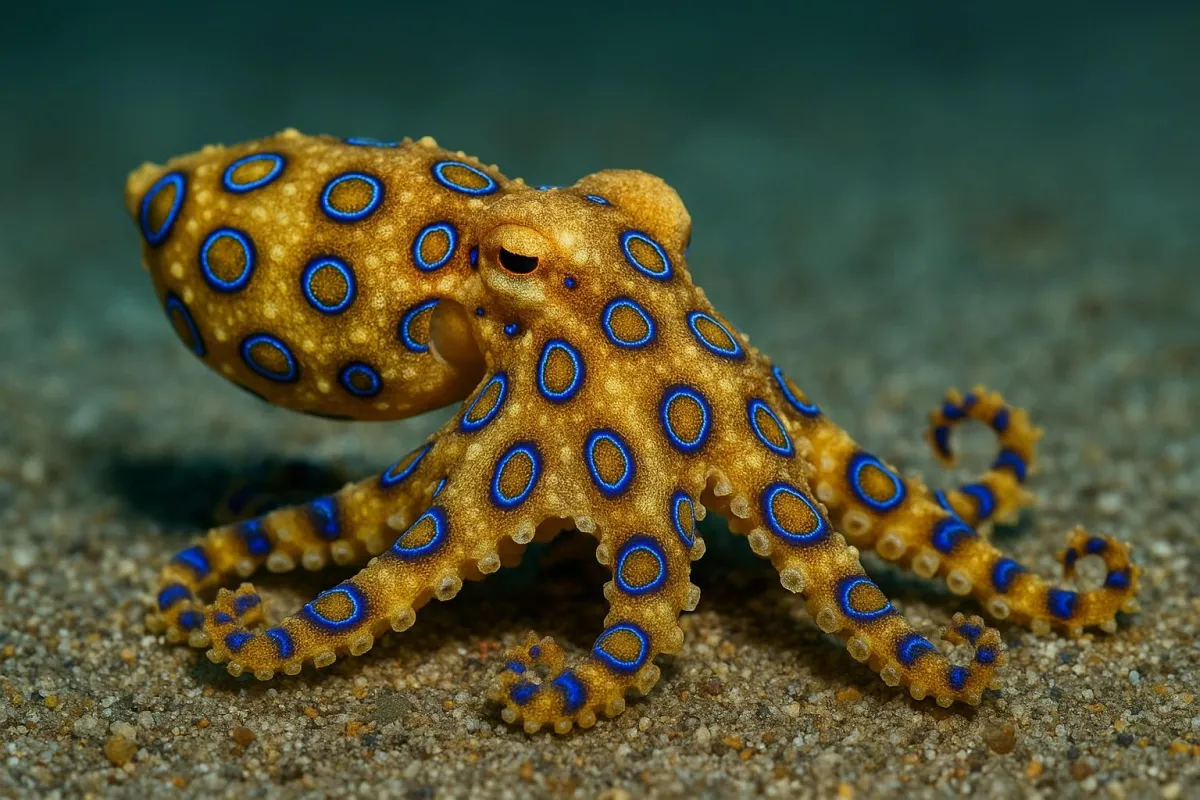
The Deadly Beauty of the Blue-Ringed Octopus
Australia’s coastline offers beauty and danger. Jellyfish, stonefish, and blue-ringed octopus injuries demand fast, informed responses. Our marine first aid posts teach you what to do when the ocean fights back. Discover proven treatments, prevention strategies, and the importance of carrying the right first aid gear on every trip. Whether you work on the water or enjoy weekend adventures, these guides help you stay safe, prepared, and confident out there.
The Deadly Beauty of the Blue-Ringed Octopus
At first glance, the blue-ringed octopus doesn’t look like one of the ocean’s most lethal predators. It’s tiny, rarely bigger than a golf ball and its iridescent blue rings make it appear almost magical. But beneath that beauty lies one of the most dangerous toxins on the planet.
Why It’s So Dangerous
The blue-ringed octopus carries tetrodotoxin, a powerful neurotoxin also found in pufferfish. This toxin works fast: it blocks the signals between nerves and muscles, leading to paralysis. That includes the muscles needed for breathing. Within minutes, a healthy adult can become unable to move or breathe, making the situation life-threatening. CPR will be needed soon after being affected by one of these beauties.
No Anti-venom, Only Time and Support
Perhaps the most terrifying fact: there is no known antivenom. Survival depends entirely on supportive care. Keeping the person alive until the toxin naturally wears off. This usually means artificial respiration, such as chest compressions with rescue breathing or mechanical ventilation in hospital, sometimes for hours.
A single blue-ringed octopus carries enough venom to kill more than 20 adults. Kilo-for-Kilo, it’s one of the deadliest animals in the world.
What To Do If Bitten
If someone is bitten:
Call 000 immediately.
Keep the person still. Movement spreads the venom faster.
Apply a pressure immobilisation bandage if possible.
Begin CPR with rescue breathing if they become unresponsive, and keep going until professional help arrives.
Doing something is always better than doing nothing. Your quick action can mean the difference between life and death.
Why Awareness Matters
Blue-ringed octopuses are found in tide pools and shallow waters around Australia. They’re not aggressive, but they will bite if handled or accidentally stepped on. Children, in particular, may be tempted to pick them up because of their size and bright colours.
Awareness and preparedness go hand in hand. Knowing the risks and having the confidence to act if an emergency happens could save a life.
✅ Want to be confident in emergencies like this?
At REACHAU, we teach real-world First Aid skills that stick — so when your brain checks out under pressure, your training kicks in.
👉 Visit reachau.com.au to learn more about our First Aid courses and book your training today.
